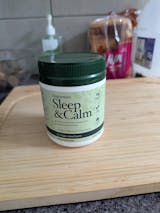The Truth About Magnesium Oil for Sleep: Myths vs. Reality
When it comes to sleep aids and boosting magnesium levels, magnesium oil is often touted as a miracle cure. Some folks swear by it, claiming it helps them sleep better and increases their magnesium levels. But hold your horses—before you start spritzing magnesium oil all over yourself, let's take a closer look at the science. Is magnesium oil really the sleep and magnesium saviour it's made out to be, or is it just another wellness trend gone a little too far?
What Is Magnesium Oil?
Magnesium oil isn't oil in the traditional sense. It's a solution of magnesium chloride flakes mixed with water, creating a brine-like liquid that’s applied topically. Advocates argue that this method allows for better absorption through the skin, purportedly leading to various health benefits, including increased magnesium levels and improved sleep.
The Claims: Fact or Fiction?
The primary claims are that transdermal (through the skin) application of magnesium oil can both increase magnesium levels in the body and improve sleep quality. Proponents believe that applying magnesium oil before bed can help relax muscles, reduce anxiety, and promote deeper sleep. Sounds pretty great, right?
Examining the Evidence
Let's break down the study "Myth or Reality—Transdermal Magnesium?" by Uwe Gröber, Tanja Werner, Jürgen Vormann, and Klaus Kisters to understand the reality behind these claims. According to their research, the efficacy of transdermal magnesium application is highly questionable. Here’s why:
The study indicates that the skin is not an effective barrier for magnesium absorption. The stratum corneum, the outermost layer of the skin, is designed to keep substances out, not let them in.
Reference: Gröber et al. (2017) highlight that "the efficacy of transdermal magnesium application has not been proven by a single methodologically robust study."

While anecdotal evidence abounds, there's a stark absence of rigorous scientific studies to back up the claims. Many of the purported benefits are based on personal testimonials rather than empirical data.
Reference: According to Gröber et al., "transdermal application of magnesium chloride shows no clear pharmacokinetic data supporting magnesium delivery into the systemic circulation."
Reference: The authors note that "subjective reports of improved sleep and relaxation could be attributed to placebo or the psychological comfort of performing a bedtime routine."
The Science of Magnesium and Sleep
Magnesium is indeed essential for many bodily functions, including sleep regulation. It plays a crucial role in neurotransmitter function and melatonin production, which are vital for sleep. However, the best-proven method to increase magnesium levels in the body is through dietary intake and oral supplements, not through the skin.
Myth-Busting: Magnesium Oil for Sleep and Magnesium Levels
So, what does this all mean for magnesium oil and its purported benefits? While the idea is appealing, the scientific evidence just doesn’t support the effectiveness of transdermal magnesium for increasing magnesium levels or improving sleep. The claims are largely based on anecdotal evidence and lack rigorous scientific backing.
Reality Check:
Applying magnesium oil might feel soothing and be part of a relaxing bedtime routine, but it’s unlikely to have a significant impact on your magnesium levels or sleep quality.
Conclusion: Stick to Proven Methods
If you’re struggling with sleep or magnesium deficiency, it’s essential to focus on proven strategies rather than unverified trends. Here are some tips:
In summary, while magnesium is crucial for health, magnesium oil isn’t the miracle aid for boosting magnesium levels or sleep quality it’s made out to be. For better sleep and proper magnesium levels, stick to methods that are backed by solid scientific evidence.

